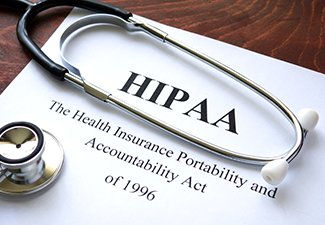Why a HIPAA Release Is an Important
Part of Estate Planning
April 15, 2022
 Surveys indicate that fewer than half of Americans, perhaps as few as one-third, have a basic last will and testament in place to provide for their loved ones when they’re gone. Comprehensive estate planning, however, means more than just naming beneficiaries. It also involves providing for contingencies for yourself if you face unexpected medical emergencies.
Surveys indicate that fewer than half of Americans, perhaps as few as one-third, have a basic last will and testament in place to provide for their loved ones when they’re gone. Comprehensive estate planning, however, means more than just naming beneficiaries. It also involves providing for contingencies for yourself if you face unexpected medical emergencies.
Contemplating and preparing for a worst-case scenario is not something that most people enjoy, but doing so can relieve your loved ones and family members of having to face legal obstacles or delays in making vital health care decisions for you. In addition to a will or living trust, you should provide a family member or successor trustee with a HIPAA authorization release form. This will enable that person to access your health records and make the proper decisions regarding your care.
For all your estate planning needs in or around Oakland, California, or in Walnut Creek, Berkeley, San Francisco, El Cerrito, Alameda, and throughout the Bay Area, contact Davidson Estate Law. We have 25-plus years of experience in helping individuals and families plan for their future.
What Is HIPAA?
The Health Insurance Portability and Accountability Act (HIPAA) of 1996 is a federal law protecting individuals from having their health information released to others without their consent. Administered by the Department of Health and Human Services (HHS), HIPAA was further augmented by three major administrative regulations.
One such regulation is called the Privacy Rule, which restricts what are called “covered entities”— physicians, health care providers, hospitals, and others — from sharing what is called your PHI, or protected health information, with those who have no need to know it. These entities are barred from sharing your medical records with other entities who have no reason to be privy to them.
Another regulation is called the Security Rule, which governs how covered entities store your information, requiring that steps be taken to prevent unauthorized access via electronic hacks or the accidental loss of a laptop or storage device. Furthermore, the Breach Rule requires covered entities to reveal to consumers the details of any loss of medical data and also to report it to government officials.
What Is a HIPAA Release?
A HIPAA release authorization gives others access to your PHI and other medical documents, including bills. The HHS regulations state that “a covered entity is permitted to share information with a family member or other person involved in an individual’s care or payment for care as long as the individual does not object.”
This means that, so long as you are in the proper physical and mental state to inform your care providers to share PHI with your family members or anyone else, the covered entity can do this. However, if you’re incapacitated or unable to give your consent because of some medical condition, your loved ones can be restricted from obtaining vital information to make informed health care decisions for you. This is where a HIPAA authorization release comes into the picture.
As part of your estate planning — which involves not only taking care of your loved ones when you’re gone but also taking care of you while you’re still here — you should complete an authorization for the release of protected health information to a family member or to a trusted friend or associate. The legal document to accomplish this requires you to name a personal representative, who will then sign the form along with you. The document also requires a date or event for when the authorization will end, and it must also name a physician or institution to receive the form. You can, of course, create more than one authorization.
How an Estate Planning Attorney Can Help
A HIPAA authorization is one important component of estate planning, but you may want to consider creating an advance health care directive along with it. The advance health care directive specifies your desired medical treatments and procedures should you become incapacitated. Both the HIPAA release and the advance directive can also be accompanied by a living trust, which names a successor trustee to take care of your financial affairs should you be unable to take care of them.
Our estate planning attorneys at Davidson Estate Law stand ready to consult with you about your unique situation and craft the legal documents that will protect you and your loved ones. Contact us today if you’re in or around Oakland, California, or anywhere in the Bay Area.
